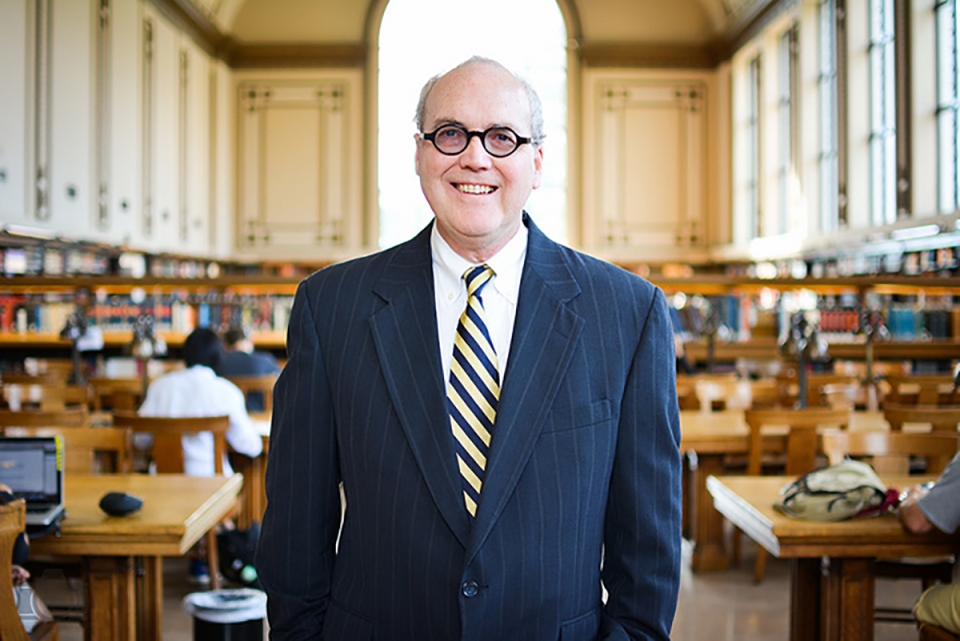Carbon Dioxide Removal and the Paris Agreement, Dr. Wil Burns
–
Morse B104Morse Building
426 Van Buren St
Monterey, CA 93940 View in Campus Map
Free
Open to the Public

In recent years, the feckless response of the world community to climate change has led to a steadily growing drumbeat for research into, and potential deployment of, so-called “climate geoengineering options.”
Indeed, interest in the potential role of such approaches has steadily grown in the past year with the release of several studies, including the IPCC’s 1.5C report, UNEP’s 2018 gap report, and the National Academy of Science’s study on carbon dioxide removal technologies. Climate geoengineering technologies include a range of so-called “solar radiation management” options, including sulfur aerosol injection and marine cloud brightening, and carbon dioxide removal technologies, including bioenergy with carbon capture and storage, enhanced mineral weathering and direct air capture.
While climate geoengineering approaches could potentially help us to avoid passing critical climatic thresholds, many of them are also fraught with risk, and could produce winners and losers, emphasizing the need for just, equitable and effective governance architecture. Moreover, some of these options could have profound implications for the sustainability provisions of Paris, both potentially furthering and undermining these objectives based on choices made in terms of scale of deployment, adequacy of monitoring, and coordination of deployment with mitigation responses.
Given the central role of the Paris Agreement in international climate policymaking, a pertinent question is how climate geoengineering approaches might be governed under the Agreement, if at all. Join Dr. Wil Burns, Co-Founding Executive Director & Professor of Research, Institute for Carbon Removal Law & Policy, School of International Service, American University, to assess the potential role of the Paris Agreement in governing climate geoengineering research and/or deployment, including their potential role in the Nationally Determined Contributions (NDCs) of the Agreement’s Parties, as well other aspects of the Agreement that might guide potential deployment by the Parties, including the role of sustainable development provisions to mediate the role of climate geoengineering. In this context, the presentation will include how pertinent aspects of the Sustainable Development Goals might be incorporated into Paris Rulebook provisions related to climate geoengineering.
Video Available
Carbon Dioxide and the Paris Climate Agreement
PowerPoint Available
PowerPoint presented by speaker
About the Speaker
Dr. Wil Burns is a founding Co-Executive Director of the Institute for Carbon Removal Law & Policy, a scholarly initiative of the School of International Service at American University and is based in Berkeley, California. He also serves as a Professor of Research at American University’s School of International Service and a Senior Scholar at the Centre for International Governance Innovation in Canada. He previously served as the Director of the Energy Policy & Climate program at Johns Hopkins University in Washington, DC. He also serves as the Co-Chair of the International Environmental Law Committee of the American Branch of the International Law Association. He is the former President of the Association for Environmental Studies & Sciences, and former Co-Chair of the International Environmental Law interest group of the American Society of International Law and Chair of the International Wildlife Law Interest group of the Society. He has published over 80 articles and chapters in law, science, and policy journals and books, and has co-edited four books. He holds a Ph.D. in International Environmental Law from the University of Wales-Cardiff School of Law.
Prior to becoming an academic, he served as Assistant Secretary of State for Public Affairs for the State of Wisconsin and worked in the non-governmental sector for twenty years, including as Executive Director of the Pacific Center for International Studies, a think-tank that focused on implementation of international wildlife treaty regimes, including the Convention on Biological Diversity and International Convention for the Regulation of Whaling. His current areas of research focus are: climate geoengineering; international climate change litigation; adaptation strategies to address climate change, with a focus on the potential role of microinsurance; and the effectiveness of the European Union’s Emissions Trading System.
Related Link/Pre-Reading
Lecture Location
On the campus of the Middlebury Institute, Morse Building, Room B104, 426 Van Buren Street, Monterey, CA. Attendees will come up the breezeway between the Student Services building and Morse Building, and room B104 will be on the right, just past the first stairwell. Wheelchair access by going around the Student Services building through the Holland courtyard.
Parking
Parking is available on the streets surrounding the venue (strict two-hour time limit enforced). There are city lots nearby that can be paid via parking meter, or free parking available on the streets in the neighborhoods above Van Buren Street (two to three blocks up the hill from venue).
Questions
Contact Rachel Christopherson at the Center for the Blue Economy at cbe@miis.edu or (831) 647-4183.
